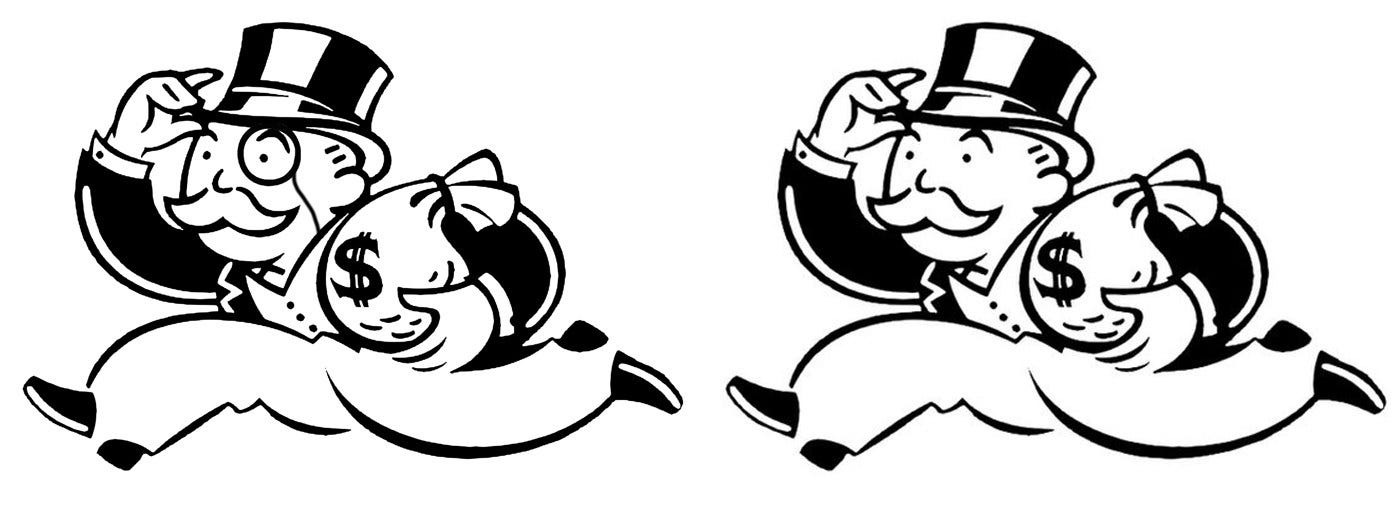The Mandela Effect: Collective False Memories That Will Blow Your Mind
Have you ever sworn something happened a certain way—only to find out you were completely wrong? Maybe you remember the Monopoly man having a monocle. Or you were absolutely sure the line was, “Luke, I am your father.”Well, you’re not alone.

What Is the Mandela Effect?
The term was coined in 2009 by Fiona Broome, after she discovered that she and many others distinctly remembered Nelson Mandela dying in prison in the 1980s. The real kicker? Mandela was released in 1990 and passed away in 2013. The realization that so many unrelated people could share the same false memory blew her mind—and thus, the Mandela Effect was born.
It’s not just about Mandela, either. The internet is full of examples where thousands (sometimes millions) of people remember the same wrong detail.
Famous Mandela Effect Examples That Might Break Your Brain
1. “Berenstein” or “Berenstain” Bears?
You grew up reading books about the bear family… but were they the Berenstein Bears or the Berenstain Bears?
Spoiler: It’s Berenstain. But don’t worry—you’re in good company if that feels wrong.
2. The Monopoly Man’s Monocle
Close your eyes. Picture the Monopoly man. Does he have a monocle?
NOPE. He never did. You're probably thinking of Mr. Peanut!
3. Curious George’s Tail
This one is, well, curious. The assumption is that Curious George is a monkey, and most monkeys are understood to have tails. Many remember Curious George having a tail, but alas, everyone's favorite curious primate is in fact tailless. We hope this hasn't caused George any kind of existential crisis.
4. “Luke, I am your father.”
The most iconic line in Star Wars history? Not quite.
Darth Vader actually says: “No, I am your father.”
(Mind. Blown.)
5. Febreze or Febreeze?
You’ve probably sprayed this air freshener a million times, but did you know it’s spelled Febreze—with just one “e”?
Something always smells a little off here…
6. Pikachu’s Tail
Many people remember Pikachu with a black-tipped tail.
Reality: His tail has never had black on the end.
(Not even in the rare Pokémon cards.)
7. Fruit of the Loom Logo:
Many people believe the logo includes a cornucopia, when it doesn't.
8. Looney Tunes:
Yes, the Looney Tunes are in fact cartoons, not cartunes. And yes, you may remember watching the next generation of characters on a TV show called Tiny Toon Adventures. Nonetheless, the original show was Looney Tunes, not Looney Toons, as a companion to Merrie Melodies.
9. "Shazaam":
One of the most well-known examples of the Mandela Effect is the collective memory of a movie called "Shazaam" that starred the actor/comedian Sinbad in the 1990s.
In fact, no such movie exists, although there was a children's movie called Kazaam starring Shaquille O'Neal, and some other coincidences that could help to explain how this movie became created (or remembered) in many people's minds. Even more confusing, there is now a movie series based on the DC Comics superhero Shazam—though it does not star Sinbad.
10. Mirror, Mirror on the wall
If you watched Snow White and the Seven Dwarfs, you probably remember the line, "Mirror, mirror on the wall, who's the fairest of them all?" As you can see from the above subtitled screenshot, the line actually began with the phrase "Magic mirror on the wall" instead. It probably doesn't help matters that Julia Roberts and Lily Collins starred in a 2012 live-action film based on Snow White called "Mirror Mirror"!
So... What’s Going On?
There are a few theories floating around:
1. Memory Isn’t Perfect
Our brains love patterns and stories. Sometimes we fill in the blanks with what makes the most sense—especially if a lot of people around us believe the same thing.
2. Social Reinforcement
Once a false memory spreads (especially online), it gains momentum. The more people repeat it, the more “real” it feels.
3. Alternate Realities?
Okay, time to get weird. Some people believe the Mandela Effect is proof of parallel universes or reality glitches—where we remember things from a different timeline. (Cue the “X-Files” theme…)
Why Does It Matter?
The Mandela Effect isn’t just fun trivia fodder—it shows us how fragile and flexible memory really is. Even the most confident, vivid recollections can be wrong. It’s a humbling reminder that our perception isn’t always reality.
Final Thoughts
Whether it’s a trick of the brain or a multiverse mind-melt, the Mandela Effect is one of those weird internet rabbit holes that’s equal parts fascinating and frustrating. It makes us question what we know—and gives us something to laugh about with our friends (while frantically Googling “Oscar Mayer vs. Oscar Meyer”).
So next time you’re positive something happened a certain way… maybe double-check. Or just chalk it up to another glitch in the matrix.

